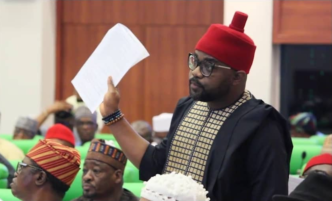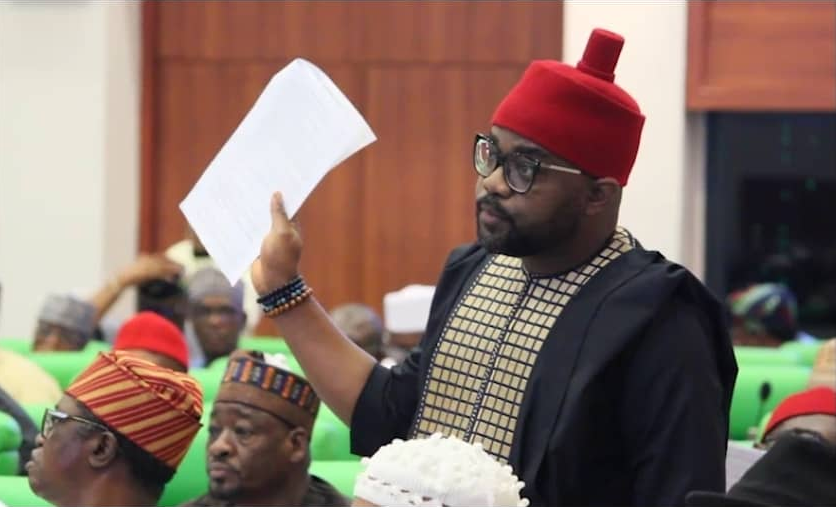HB. 1431
A BILL FOR AN ACT TO ALTER THE PROVISIONS OF THE CONSTITUTION OF THE FEDERAL REPUBLIC OF NIGERIA, 1999 (AS ALTERED) TO MOVE CONSTRUCTION OF ROADS OTHER THAN TRUNK A FEDERAL ROADS TO CONCURRENT LEGISLATIVE LIST AND FOR RELATED MATTERS. Bill Sponsored by Hon. Ikeagwuonu Ugochinyere. Bill Progress: Committee Stage.
The Bill seeks to alter Part II of the 3rd Schedule of the Constitution to move
construction of any roads aside from TRUNK A FEDERAL ROADS to concurrent
legislative list and to allow state government and private sectors more power to fund roads rehabilitation and reconstruction.
A new legislative proposal in Nigeria, known as HB. 1431, seeks to amend the provisions of the 1999 Constitution to facilitate the management and construction of a broader range of roads by shifting the oversight from exclusive federal control to a more collaborative framework of governance. This bill aims to include the construction of 23 roads, currently classified as non-trunk federal roads, into the Concurrent Legislative List of the Constitution.
The primary objective of HB. 1431 is to decentralize road construction authority, allowing both the Federal and State Governments to engage in the planning, development, and maintenance of these critical infrastructure projects. Under the current constitutional framework, many aspects of road construction fall solely under the jurisdiction of the federal government, limiting states’ ability to directly address their unique transportation needs.
The proposal reflects an understanding of the pressing infrastructure deficit Nigeria faces, particularly in road networks that are essential for economic growth and connectivity. By empowering state governments to take a more active role in the construction of these roads, the bill aims to enhance the overall road infrastructure landscape and improve transportation accessibility across various regions.
In recent years, there has been a growing recognition that state governments are better positioned to understand and address the specific transportation challenges faced by their constituents. HB. 1431 acknowledges this reality by promoting a more cooperative approach to road construction. By granting states the authority to construct these 23 additional roads, the bill could lead to improved planning and more timely execution of infrastructure projects.
Proponents argue that this legislative change would have several significant benefits. Firstly, it would enable states to respond more efficiently to local transportation needs, ensuring that priority roads are built and maintained according to regional demands. Additionally, the collaboration between federal and state governments could streamline funding and resource allocation, leading to better utilization of public funds in road construction.
Moreover, increasing the involvement of state governments in road development aligns with broader goals of fiscal federalism, allowing states to exercise greater autonomy over their infrastructure projects. This shift could stimulate economic development and create job opportunities within the states as local contractors and labor are engaged in these initiatives.
Despite its potential advantages, critics of HB. 1431 express concerns about the complexities of sharing authority between federal and state governments in road construction. Questions around jurisdiction and coordination may arise, particularly in areas where both levels of government have overlapping interests. Ensuring effective collaboration and avoiding disputes over responsibilities will be crucial for the success of this legislative change.
Additionally, there may be challenges related to funding and resource allocation. States, particularly those with limited budgets, might struggle to finance the construction and maintenance of the newly assigned roads without adequate support from the federal government.
The sponsorship of HB. 1431 indicates significant backing within the legislative framework, reflecting a growing consensus on the need for a more decentralized approach to infrastructure development in Nigeria. If passed, the bill will require a thorough legislative process, including approval from a two-thirds majority in both the House of Representatives and the Senate. It would also need ratification by two-thirds of the State Houses of Assembly and presidential assent to become law.
In conclusion, HB. 1431 represents a progressive step toward reforming Nigeria’s approach to road construction and infrastructure management. By moving the oversight of 23 non-trunk federal roads to the Concurrent Legislative List, the bill aims to enhance collaboration between federal and state governments, ultimately striving to improve road connectivity and accessibility across Nigeria. The implications of this bill will be closely watched, as its successful implementation could significantly impact the nation’s infrastructure landscape.













